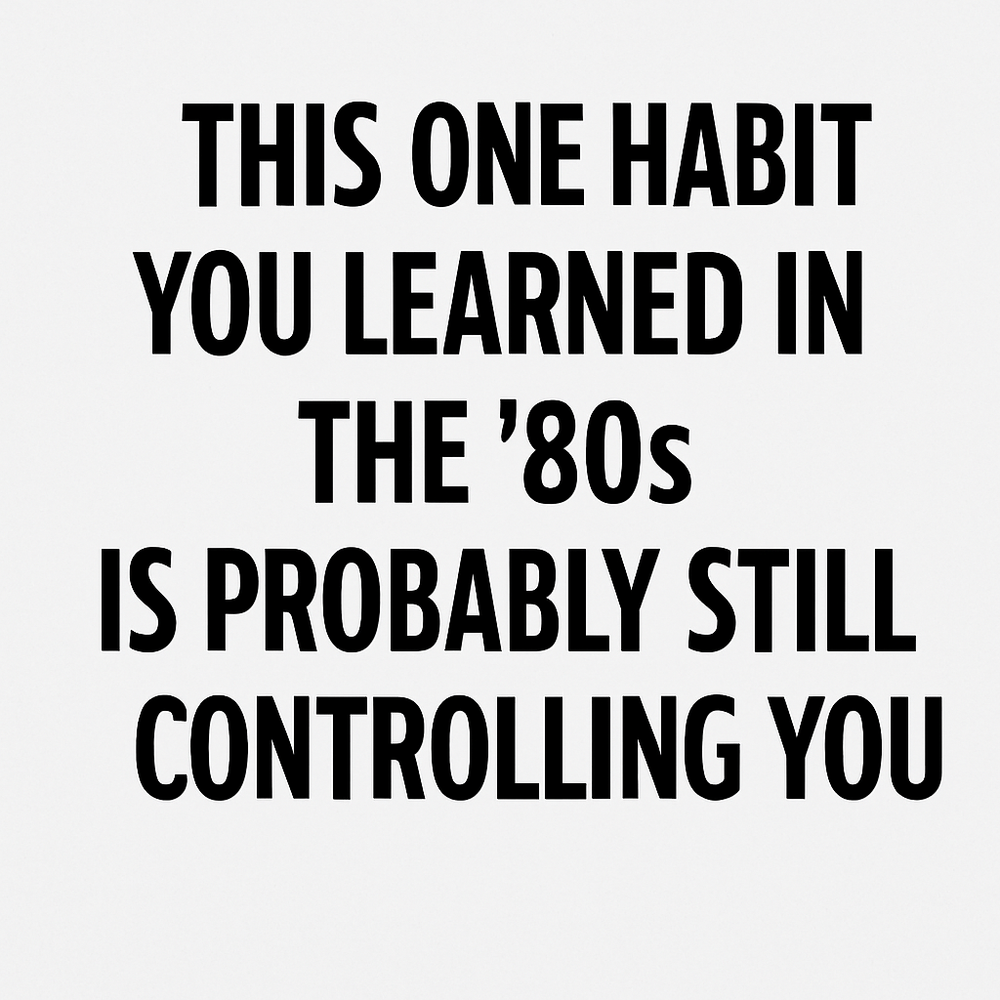This One Habit You Learned in the ’80s Is Probably Still Controlling You
Written by: [Michael C]
© [2025] All rights reserved.
This One Habit You Learned in the ’80s Is Probably Still Controlling You
🧼 I. “Put On a Happy Face.”
Sound familiar?
It wasn’t just a phrase.
It was a program — quietly installed in millions of kids growing up in the ‘80s.
No matter what was going on behind the scenes...
the rule was simple:
Look okay.
Act okay.
Be okay.
Whether you were hurting, overwhelmed, confused, or scared, the message was clear:
“Smiling makes it better.”
“No one likes a complainer.”
“Keep it together.”
That became your operating system.
And decades later —
it’s still running in the background.
🧠 II. A Generation of Emotional Masking
In the ‘80s, therapy was taboo.
Feelings were “drama.”
Crying in public? Embarrassing.
Talking about your needs? Selfish.
So you adapted.
You learned how to:
- Brush off pain with humor
- Shrink yourself for peace
- Say “I’m fine” without blinking
- Feel anxiety and smile through it anyway
It became a survival tactic.
And over time, a habit.
And now? A reflex.
🔄 III. How That Habit Shows Up Today
It’s subtle, but it runs deep.
You might:
- Avoid hard conversations because you “don’t want to burden anyone”
- Downplay your own stress even when it’s killing you
- Feel guilty for needing help
- Push through burnout like it's noble
That’s not random.
That’s the 1980s emotional economy still cashing checks from your nervous system.
You were taught that emotions were optional.
That strength = silence.
That expressing your truth was “too much.”
But what if none of that was ever healthy?
🕳️ IV. The Root of It: Performative Peace
The real habit we learned?
Performing okay-ness.
We became experts at it.
We knew how to smile during pain, apologize when angry, and make everyone else comfortable — even when we weren’t.
But peace that requires silence isn’t peace.
And joy that requires suppression isn’t joy.
We thought we were being strong.
We were actually just editing ourselves to survive.
🧯 V. You’re Allowed to Unlearn It
Here’s the good news:
You’re not stuck.
You can still be kind… without being silent.
You can still be strong… and still ask for help.
You can still smile… after you process the truth, not instead of it.
Unlearning doesn’t mean blaming.
It means recognizing.
Because once you see it clearly, the habit loses its grip.
🔍 Final Reflection
So ask yourself — quietly, honestly:
Do I still hide parts of myself just to keep the peace?
Do I still smile when I actually want to cry?
Do I feel guilt… for simply needing space?
If so —
it’s not a flaw.
It’s a pattern.
One that started decades ago in classrooms, kitchens, and quiet living rooms filled with unsaid things.
But you’re allowed to feel now.
You’re allowed to unlearn the smile you were taught to wear.
And when you do?
That’s not weakness.
That’s the kind of strength we never got taught.
